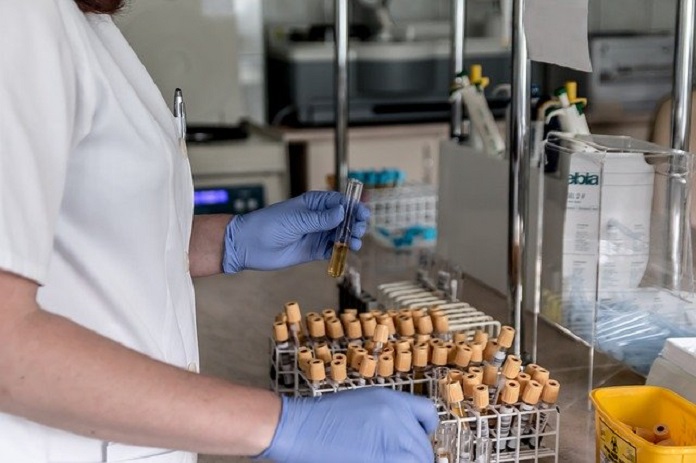A randomized phase 3 clinical trial has shown that pembrolizumab combined with chemotherapy improves the pathological complete response (defined as no evidence of cancer) of patients with early-stage triple-negative breast cancer.
Triple-negative breast cancer (TNBC) is a high-risk cancer type comprising approximately 15% of all breast cancers. However, TNBC is more aggressive and has higher rates of early recurrence and mortality. TNBC is ‘triple-negative’ since it lacks expression of the estrogen receptor, progesterone receptor, and the HER2 protein. This specific type of cancer cannot be treated by hormone therapy or HER2-targeting drugs, such as Herceptin and Enhertu, making TNBC treatment a challenge. The current standard treatment for TNBC is neoadjuvant chemotherapy (chemotherapy prior to surgery); clinical trials are attempting to find targeted drugs to improve the effectiveness of chemotherapy.
A recent study published in The New England Journal of Medicine has investigated the effect of adding pembrolizumab in combination with chemotherapy for patients with stage II or III TNBC. Pembrolizumab blocks programmed death ligand 1 (PD-1) by binding to the PD-1 receptor; this monoclonal antibody has been used in various cancer types in order to stimulate anti-tumour activity.
The trial included 1174 newly diagnosed TNBC patients from 21 countries, who were split in a 2:1 ratio between two treatment groups: pembrolizumab-chemotherapy and placebo-chemotherapy. Pembrolizumab or placebo was intravenously administered at both neoadjuvant and adjuvant phases. Both groups were assessed at the time of definitive surgery and a significant improvement of 13.6% was found in the pathological complete response of patients in the pembrolizumab-chemotherapy group (64.8%) compared to the placebo-chemotherapy group (51.2%). After a follow-up of 15.5 months, disease progression was found in 7.4% and 11.8% of patients in the pembrolizumab and placebo groups, respectively.
In both groups, the most frequent adverse events associated with treatment included neutropenia (a reduced concentration of neutrophils in the blood) and anemia. These side effects are consistent with those generally observed as a consequence of platinum-based chemotherapy. However, the trial reported fewer treatment-related adverse events in the patients who received placebo-chemotherapy (73%) compared to those in the pembrolizumab-chemotherapy group (78%).
Overall, the results of this study are promising and imply that the addition of immune checkpoint inhibitors to neoadjuvant chemotherapy could result in a significantly higher percentage of TNBC patients with pathological complete response. The researchers are currently carrying out further assessments on the safety profile of pembrolizumab and its impact on TNBC patient survival.
Written by Albina Babu, MSc
References:
Schmid, P., et al. (2020). Pembrolizumab for Early Triple-Negative Breast Cancer. New England Journal of Medicine, 382(9), pp.810-821.
Anders, C.K., Zagar, T.M. and Carey, L.A. (2013). The Management of Early-Stage and Metastatic Triple-Negative Breast Cancer: A Review. Hematology/Oncology Clinics, 27(4), pp.737-749.
Image by Michal Jarmoluk from Pixabay



